Thematic Area 3: Physical health and mental health (2020)
Public health has been the central concern of the nation during 2020, a concern that has dominated every aspect of our daily lives. The particular situation of prisons – closed residential settings, accommodating people with higher rates of chronic ill health, in close proximity to each other – means prison healthcare has been at the forefront of the Covid-19 response. The Irish Prison Service is to be commended on its significant success in keeping the prison population largely safe from Covid-19, notwithstanding a small number of confirmed cases among prisoners and confirmed cases among staff.
The right of everyone to the enjoyment of the highest attainable standard of both general physical and mental health is outlined under Article 12 of the International Covenant on Economic, Social and Cultural Rights.[319] This extends to people in prison, and the right of prisoners to be kept safe from the coronavirus, and the inter- relationship between public health and prison health, was recognised from the outset of the pandemic, both internationally and at national level. International bodies such as the World Health Organisation (WHO) have played an important role during the pandemic in delivering the core message that prison health is public health.[320]
In Ireland, strong and close co-operation between prison health and national public health services has been a feature of the pandemic response, including the representation of the Irish Prison Service Executive Clinical Lead on the Covid-19 NPHET Sub-group on Vulnerable People.[321]
It is also important to recognise the expertise in infections controls that the IPS brought to the public health stage. For example, the Irish Prison Service National Infection Control Team commenced a programme to train contract- tracing teams (CTTs) within prisons. The aim of this programme was to enable the IPS to support public health in the early identification of people that may have been exposed to Covid-19 and take action to prevent further transmission.[322] This is one example of a joined-up approach taken by prison and public healthcare authorities, which yielded positive results to protect the health of the prison population, their families and the general public from Covid-19.[323] Up to 22 August 2020, the prison population remained Covid-free.[324] The same joined-up approach to healthcare can and should be taken more broadly to address the general physical and mental healthcare needs of the prison population, ensuring equivalence of healthcare for those in prison. The Health Needs Assessment of the prison population underway in 2020 should give guidance on how best to align prison health care with the broader health system in future.[325] (See Standard 12, Access to healthcare services.)
However, measures introduced to protect the prison population from the threat to physical health that Covid-19 presents must be examined in terms of the wider impact on the mental health of those in prisons (See Standard 13, Mental Healthcare.) The restrictive measures introduced for people who have already been deprived of their liberty, and their associated impact on mental health, is much greater than for the general population.[326]
During the initial lockdown period, prisoners who were in isolation were on a more restrictive regime while testing was being completed. Prisoners in isolation did not have access to outdoor exercise,[327] and in some cases did not have access to showers for up to 14 days.[328] The importance of fresh air, exercise and showers to a person’s physical and mental well-being cannot be overstated. Similarly, a report on the experience of prisoners who were cocooning offered valuable insight into the harshness of restrictions experienced by vulnerable cohorts in prison, and their concerns about deteriorating mental health.[329]
The uncertainty of Covid-19 has further impacted on the mental health and well-being of prisoners – particularly given that protective factors, such as family contact and access to purposeful activity, have been greatly reduced. The Programme for Government commitment to establish a task force to address mental health, addiction and imprisonment is positive. It is crucial that this task force also addresses the longer-term mental health impact Covid-19 has had on the men and women in prison, and on their families in the community.
References:
-
319.
^
-
320.
^
-
321.
^
-
322.
^
-
323.
^
Ibid.
-
324.
^
-
325.
^
Irish Prison Service, Irish Prison Service response to requests for PIPS 2020 07.08.2020
-
326.
^
-
327.
^
Irish Prison Service, Irish Prison Service response to requests for PIPS 2020 07.08.2020
-
328.
^
-
329.
^

